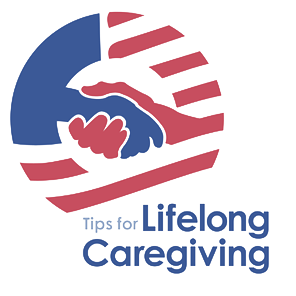Military Separation
In general, a servicemember who is separating or retiring because of a disability is allowed a final move to a home selected by the member from his or her last duty station. A servicemember may choose a home anywhere in the U.S., the home of record outside the U.S., a place outside the U.S. where the member initially was called or ordered to active duty, or any other place (Caution: The allowance paid in these cases cannot exceed those paid if the member had selected a home at a CONUS [Continental United States] location).
The decision to move does not have to happen immediately upon separation or retirement, but it must be made within a year after leaving active duty. Caregivers should consider whether the servicemember for whom they care requires routine specialty care away from where the final destination for his or her home.
If the servicemember is in the hospital or undergoing continuous medical treatment at a hospital on an outpatient basis upon retirement, the one-year restriction starts upon discharge from the hospital or termination of the medical treatment. Exceptions to the one-year rule apply; however, the servicemember must submit an extension request in writing to the various branch of service (usually the Transportation Office at the last duty station) (outlined in the governing regulation), and the extensions are made annually for a time period not to exceed six years. The request should state the extension is being requested because of ongoing medical treatment.
Even at the six-year mark, additional time may be granted for a period not to exceed six years if it is substantially to the member’s benefit, not costly or otherwise adverse to the service, or additional time beyond the six-year limit is required because of a servicemember’s certified ongoing medical condition.
In addition, you may request a weight allowance waiver especially if you have additional medical equipment to ship.
More can be found in the governing regulation, the JFTR Vol 1, Chapter 5.
Some servicemembers will separate from service without retirement, with or without going through the Integrated Disability Evaluation System process. In those instances, some programs are available for use by the servicemembers and their families.
If your servicemember is separating or retiring outside of the disability evaluation system, the Benefits Delivery at Discharge (BDD) program gives a servicemember the opportunity to apply for VA disability compensation benefits before being discharged from service. The benefit of the program is to speed up receipt of VA compensation so the servicemember will start receiving VA compensation within 60 days of discharge.
A “timing” rule exists so caregivers should understand when and how their servicemembers can apply. The timing rule establishes a 90-day application window. The servicemember must file the disability claim with no less than 60 days and no more than 180 days remaining on active duty prior to separation. BDD requires the 60-day minimum to allow enough time to complete the VA medical examination process prior to separation from service. (The VA medical exam process is known as the Compensation and Pension exam and is commonly referred to as a C&P exam.)
Your servicemember can apply for the BDD program using one of two methods: submitting VA Form 21-526, Veteran’s Application for Compensation and/or Pension, to the nearest VA regional office or completing the application on the VA website using the Veterans Online Application. Additionally, the VA Form 21-526 can be downloaded from the VA website and submited by mail or with the help of a veteran service officer (which is highly recommended). More information can be found in our Veterans Affairs section.
The Continuing Health Care Benefits Program (CHCBP) allows servicemembers and their family members who are losing TRICARE eligibility to buy a continuation of TRICARE-like coverage.
People who can benefit from using CHCBP include servicemembers who are separating (not retiring) from military service and their qualifying family members.
Under the CHCBP, coverage equivalent to TRICARE Standard may be purchased for periods of 90 days at a time. Like Standard, CHCBP has a deductible of $150 (individual) or $300 (family) and a 25-percent copayment for inpatient and outpatient services. It also includes TRICARE Pharmacy coverage.
Premiums for 2014 are:
- $1,193 per quarter for an individual
- $2,682 per quarter for a family
CHCBP is not a permanent health insurance option. It is meant to provide temporary coverage for 18 months (servicemember) to 36 months (family member) until more permanent coverage is found.
CHCBP must be purchased within 60 days of losing TRICARE eligibility or within 30 days of loss of TRICARE Reserve Select coverage. CHCBP coverage begins the first day after the loss of TRICARE eligibility.
Upon separation from the service and after terminal leave is complete, the Transitional Assistance Management Program benefit provides 180 days of premium-free transitional health care for the servicemember and his or her family members.
The service branch determines eligibility, with the Defense Enrollment Eligibility Reporting System documenting it in the servicemember's record. He or she must have separated under honorable conditions from active duty or activation for National Guard or Reserve members under one of the following reasons:
- active duty involuntary separation,
- active duty separation from involuntary retention (stop-loss) supporting a contingency operation,
- active duty separation to a Selected Reserve component agreement without a break in service,
- National Guard or Reserve member separation after a contingency operation activation period of greater than 30 consecutive days, or
- sole survivorship discharge.
Participants may use health care plan options listed below or choose to receive care at a MTF). Both TRICARE Prime options, along with the U.S. Family Health Plan option, require enrollment. Go to TRICARE's website for further information on the structure of each plan option:
- TRICARE Prime
- TRICARE Standard and Extra
- USFHP
- TRICARE Prime Overseas
- TRICARE Standard Overseas


